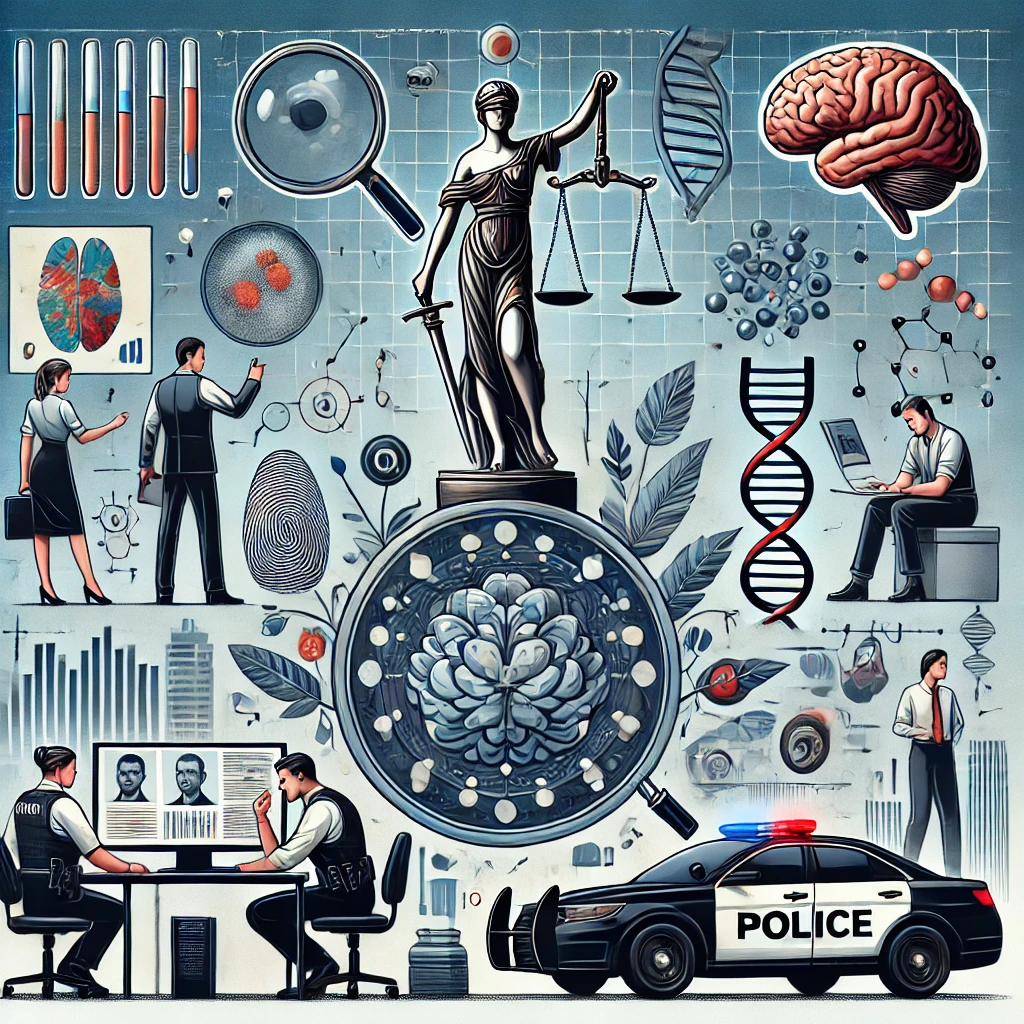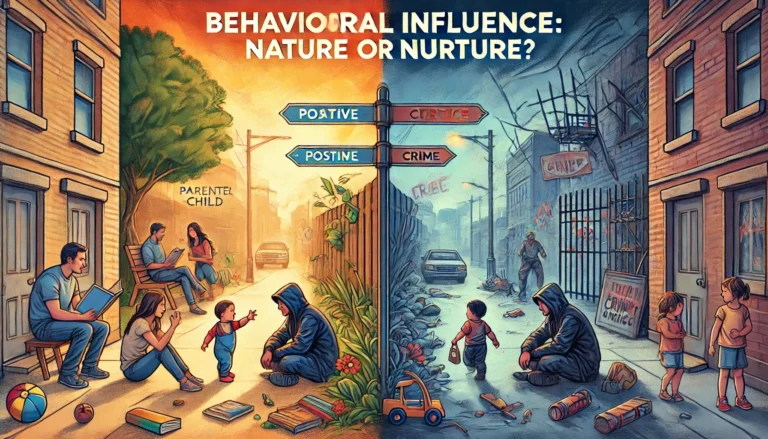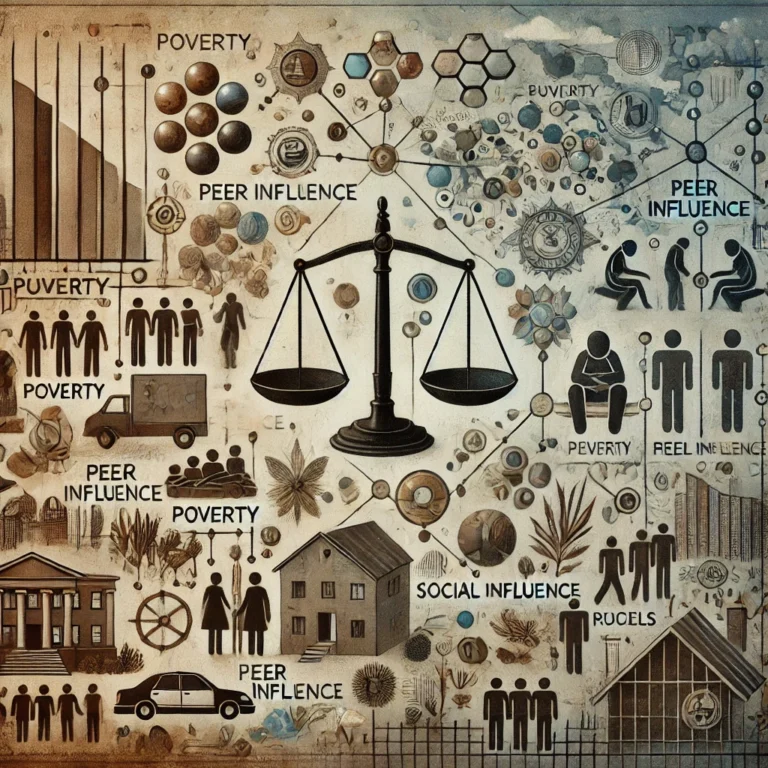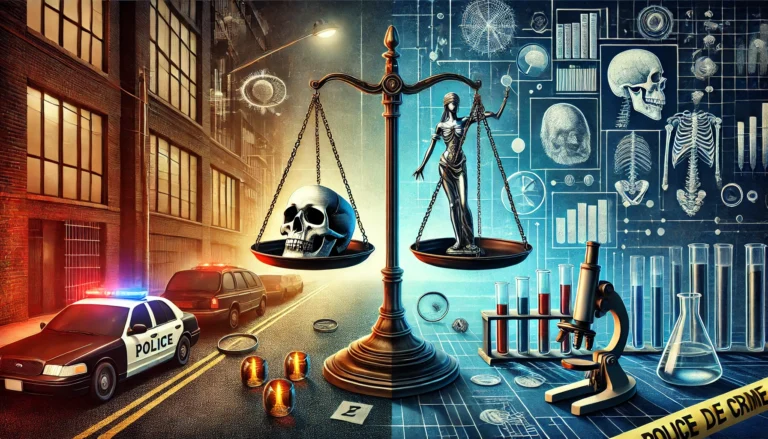The Role of Criminology in Understanding and Analyzing Criminal Behavior
Criminology, the scientific study of crime and criminal behavior, serves as a critical tool for understanding the complexities of deviance. By analyzing the causes, patterns, and societal impacts of criminal acts, criminology helps bridge the gap between theory and practice. This article explores the multifaceted role of criminology in shedding light on criminal behavior and informing effective interventions.
1. Understanding the Causes of Criminal Behavior
Criminology delves into the root causes of criminal acts, offering insights into why individuals deviate from societal norms.
Biological Influences
- Genetic Factors: Examining links between heredity and criminal tendencies.
- Neurological Studies: Investigating brain function and its role in impulsivity or aggression.
Psychological Factors
- Mental Health Disorders: Identifying psychological conditions contributing to deviant behavior.
- Personality Traits: Studying traits like narcissism or lack of empathy in offenders.
Sociological Perspectives
- Social Inequality: Highlighting the impact of poverty, discrimination, and lack of opportunities.
- Cultural Norms: Understanding how societal values shape perceptions of crime.
2. Analyzing Criminal Patterns and Trends
Criminology employs data-driven approaches to analyze crime rates and patterns over time.
Crime Mapping
- Hotspot Identification: Using geographical tools to pinpoint areas with high crime rates.
- Temporal Patterns: Observing seasonal or time-specific fluctuations in criminal activity.
Criminal Profiling
- Developing offender profiles to predict behaviors and assist in investigations.
- Leveraging psychological and demographic data for more accurate profiling.
3. Informing Criminal Justice Policies
Criminological research is instrumental in shaping effective criminal justice policies.
Preventive Measures
- Crafting community-based programs aimed at youth engagement and crime deterrence.
- Advocating for policies addressing systemic issues like unemployment or substance abuse.
Sentencing and Rehabilitation
- Promoting fair sentencing practices rooted in criminological insights.
- Emphasizing rehabilitation over punishment to reduce recidivism rates.
4. Exploring the Role of Technology in Crime Analysis
Criminology has embraced technology to better understand and counteract criminal behavior.
Big Data and Analytics
- Predictive Policing: Analyzing historical crime data to prevent future offenses.
- Social Media Monitoring: Detecting criminal activity or trends online.
Forensic Science
- Using advanced forensic tools, such as DNA analysis, to identify and prosecute offenders.
- Developing digital forensics to tackle cybercrime and online fraud.
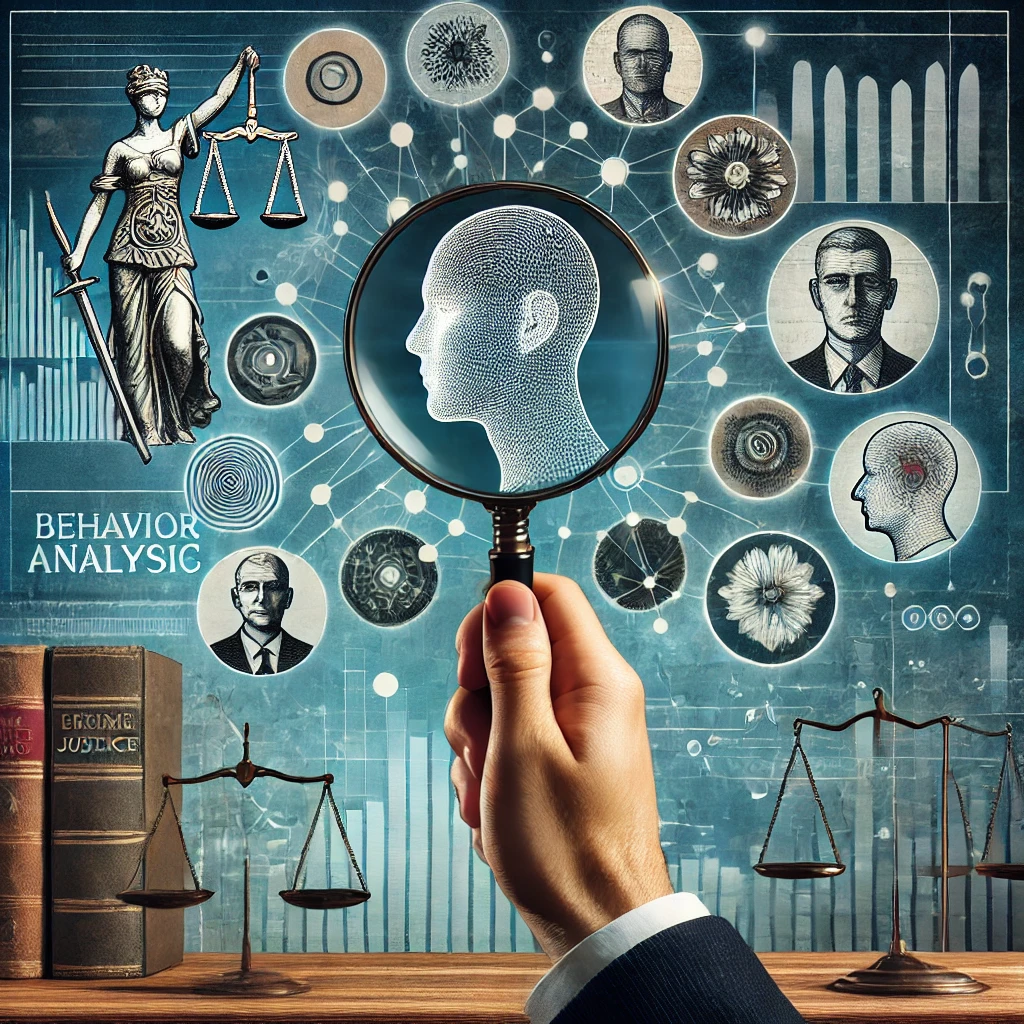
5. Enhancing Public Awareness and Education
Criminology plays a pivotal role in educating society about the causes and prevention of crime.
Community Outreach Programs
- Raising awareness about domestic violence, substance abuse, and other crimes.
- Encouraging community involvement in crime prevention initiatives.
Educational Curricula
- Incorporating criminology in academic programs to foster a better understanding of crime.
- Training professionals in law enforcement, social work, and policy-making.
6. Contributing to Global Crime Prevention Efforts
Criminology extends beyond local contexts, addressing international crime challenges.
Transnational Crimes
- Tackling issues like human trafficking, terrorism, and drug smuggling.
- Analyzing the global impact of organized crime networks.
Policy Collaboration
- Supporting international treaties and agreements to combat global crime.
- Advising on the establishment of organizations like INTERPOL and UNODC.
7. Ethical Considerations in Criminological Studies
Criminologists must navigate ethical dilemmas while studying sensitive topics.
Balancing Privacy and Research
- Respecting individuals’ rights while collecting data.
- Ensuring the confidentiality of victims and offenders in research.
Avoiding Bias
- Promoting objectivity and avoiding stereotypes in criminological analyses.
Conclusion
Criminology offers a comprehensive framework for understanding and analyzing criminal behavior. By integrating biological, psychological, and sociological perspectives, criminology not only explains the causes of crime but also informs policies and interventions that address its consequences. Its evolving role ensures a better-informed society equipped to tackle both traditional and emerging challenges in crime prevention and justice.

